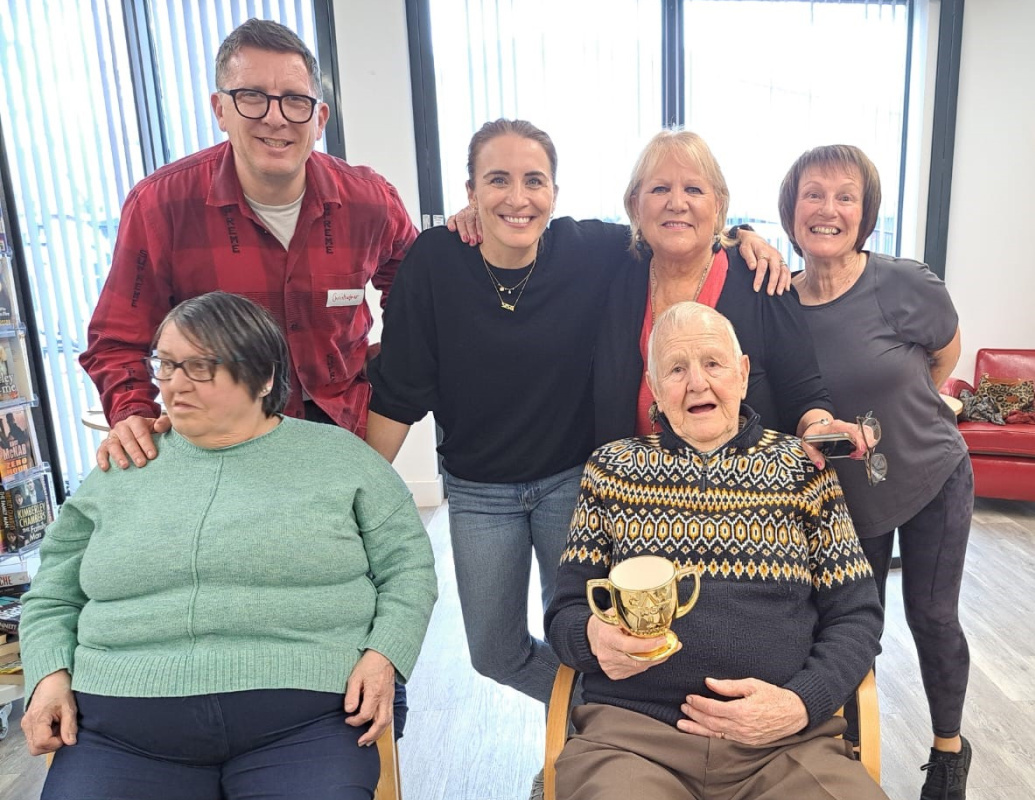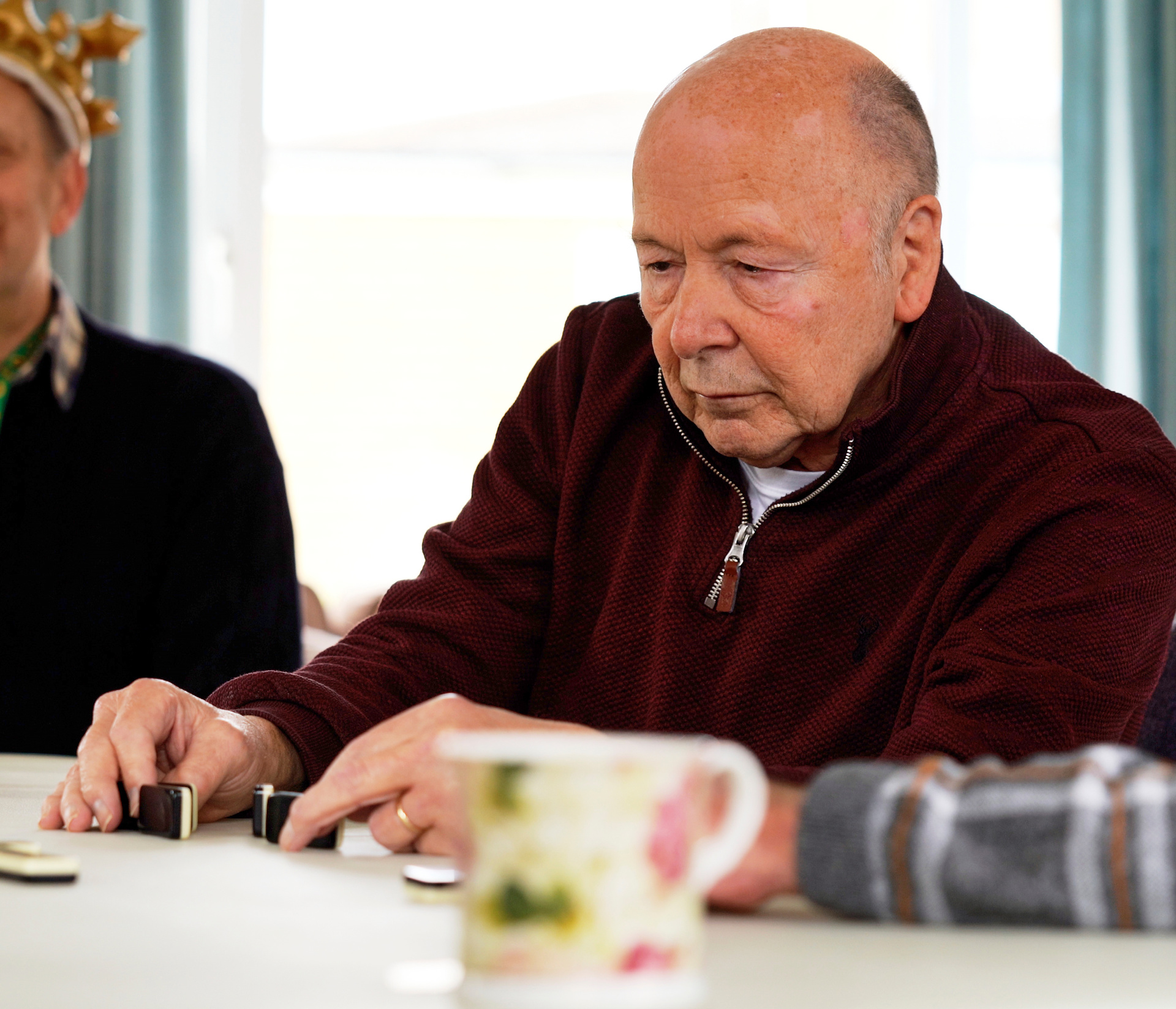Dementia ‘Your Peace of Mind’
See below more information about Dementia and learn more about support and services available here in Nottingham.

Published: 05/04/2024

Good News - Dementia therapy at home works.
Proven world studies have evidenced that staying active in your home and community with the right support is beneficial for your cognitive wellbeing. This has now been developed further in the form of Cognitive Stimulation Therapy (CST) and a more direct approach of Cognitive Therapy (CT).
We have witnessed first hand many people living with Dementia in Nottingham enjoying their independence, in familiar surroundings with family and friends close at hand to support when necessary.
Be aware - Cognitive health can decline in the wrong environments?
Dementia support in Nottingham - Are you ready to learn more?
Part 1 - Dementia a unique journey.
They say, 'If you've met one person living with dementia, you have met one person living with dementia,' this highlights the individuality of this disease. By supporting different people living with dementia, we gain a deeper understanding of their unique experiences and support needs.
It is important to remember that Dementia is a unique journey for everyone diagnosed and complex, here are some reasons why.
Dementia is characterised by a combination of cognitive and functional symptoms, which can be caused by neurological, physical, social, and psychological conditions for each individual.
Meaning each person, due to their different backgrounds and experiences, will be faced with unique challenges and this is important to know as we start to recognise and support the specific and individual needs that matter to each person affected.
Early symptoms of Dementia can usually involve small changes to the functionality of the brain that progress to affect daily life. Specific symptoms present themselves when the different parts of the brain are damaged by a particular disease.
Although Dementia is progressive the actual effect on the person or the degree of the disability can vary depending on their situation. This is because your brain is extremely complex, with many different parts, 36 billion neurons and 86 trillion connections.
This is all housed and influenced by an individual life history, current health, neurological status, social and emotional experience to date.
Memory is often associated with Dementia, however your memory is just one cognitive benefit and Dementia can alter much more, it can change functionality, how you engage with others and objects, reasoning, planning and judgement.
Did you know there are different memory types that store information in different ways including emotions, facts ideas and concepts, automatic response known as muscle memory and events stored.
There is much more information you could research and below we have included some research and links for more details if you would like to learn more below.
See the video in this section to learn more about the brain and its functionality.
Christopher Tansley | Right at Home Nottingham"Above are two helpful links providing both local and international reports giving hope for people living with dementia. We all have a responsibility to create a dementia-friendly community, treat people with the respect they deserve and providing reassurance in a safe space to live well."
Now we know a little more, how do you start planning to live well?
- Surround yourself with people that know you well and provide the right support.
- Don't be rushed, allow the right time to feel supported.
- Adapt your environment to be independent.
Empowering Home Support: Building confidence for better cognitive health.
No stranger promise
Guaranteed familiar faces: We ensure our clients are consistently supported by the same caregivers, reassuring with familiarity and trust.
Building lasting relationships: We go beyond medical needs, matching clients with compatible caregivers to build meaningful connections.
Continuity of care: Our clients receive consistent support from caregivers who understand their past experiences, unique preferences and goals.
Personalised and flexible to support your independent lifestyle.
We understand the importance of routine in maintaining comfort and well-being. That's why we work with you to schedule care visits at your preferred times, ensuring minimal disruption. Our care isn't rushed. during the assessment, we carefully evaluate the time needed for each visit, considering the tasks you manage independently and those where you might need a helping hand.
Backed by experience and knowledge
Right at Home bridges the gap between various healthcare professionals in our community. Through seamless collaboration and a commitment to real-time information sharing, we ensure our clients receive the most comprehensive and responsive healthcare possible. This client-cantered approach, where we adapt to changing circumstances, is a cornerstone of effective healthcare decision-making.
We are very proud that our team have achieved the rating of outstanding from the CQC which validates their professional commitment. This would not be possible without reflecting and acting upon changing information and requires the utmost resilience, keeping our Clients safe and maintaining our compassionate culture.


FAQs
What Inspired Your Focus on Cognitive Health and Dementia Support?
Our journey into emphasising good cognitive health and specialised dementia support began when we witnessed the negative impacts of inadequate support on two of our clients, Barry and Sheila, during their hospital stays after falls at home. Despite their independence and active engagement in their community and home environment, the lack of appropriate cognitive stimulation and support in the hospital highlighted the need for specialised care that aligns with the individual needs of those living with dementia.
How Does Staying Active Benefit Cognitive Health?
Staying active in your home and community plays a crucial role in maintaining and enhancing cognitive health. Engaging in various activities stimulates different parts of the brain, promoting overall brain function and health. Conversely, environments that lack stimulation and induce anxiety, such as what Barry and Sheila experienced in hospital, can negatively affect cognitive health. This underscores the importance of supportive and stimulating environments for individuals with cognitive health concerns.
What Makes Our Care Approach Different?
Our care approach is fundamentally personalised, focusing on the unique preferences, routines, and personalities of our clients. We prioritise creating a familiar and comfortable environment for our clients, ensuring they are greeted by familiar faces and matched with caregivers who share similar personalities. This personalised care strategy aims to reduce stress, foster personal relationships, and improve both physical and mental wellbeing, emphasising the continuity and stability in the daily lives of our clients.
How Do You Ensure High-Quality Care for Individuals with Dementia?
Ensuring high-quality care for individuals with dementia involves a multifaceted approach, including personalised care plans, ongoing caregiver training, and seamless collaboration with healthcare professionals. Our caregivers receive industry-leading training and participate in a continuous learning and development programme, allowing them to specialise and gain hands-on experience. Furthermore, our commitment to understanding each client and meticulously planning the right support approach underlines our dedication to alleviating stress and improving the well-being of those living with dementia.





